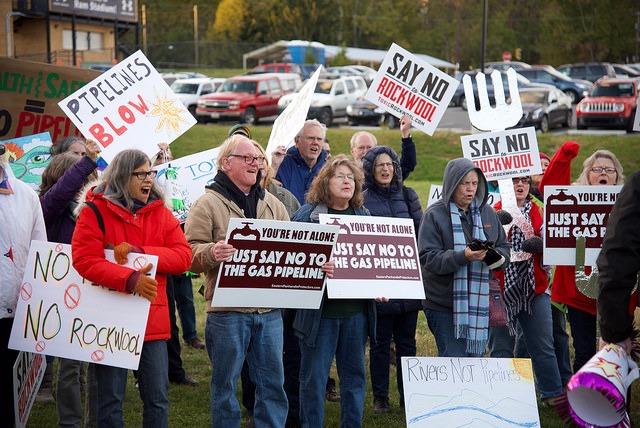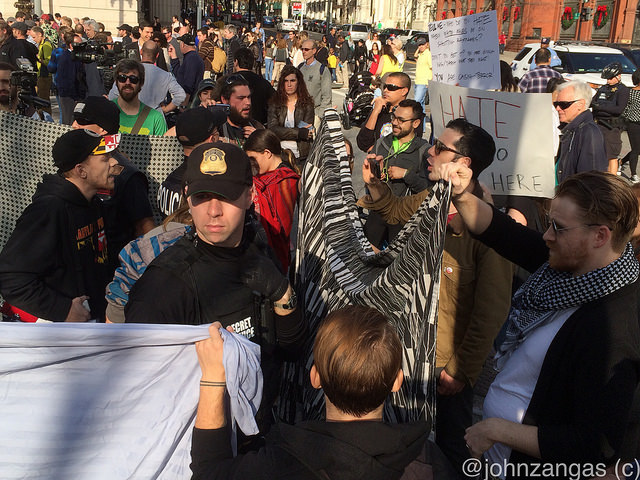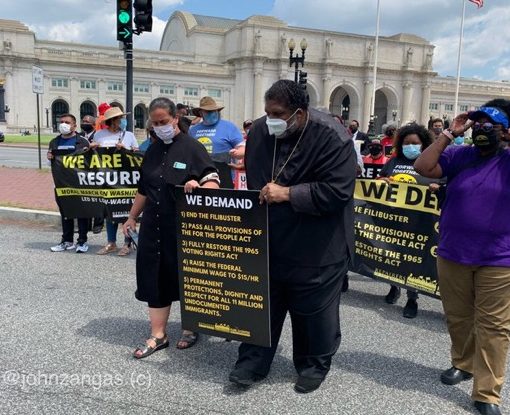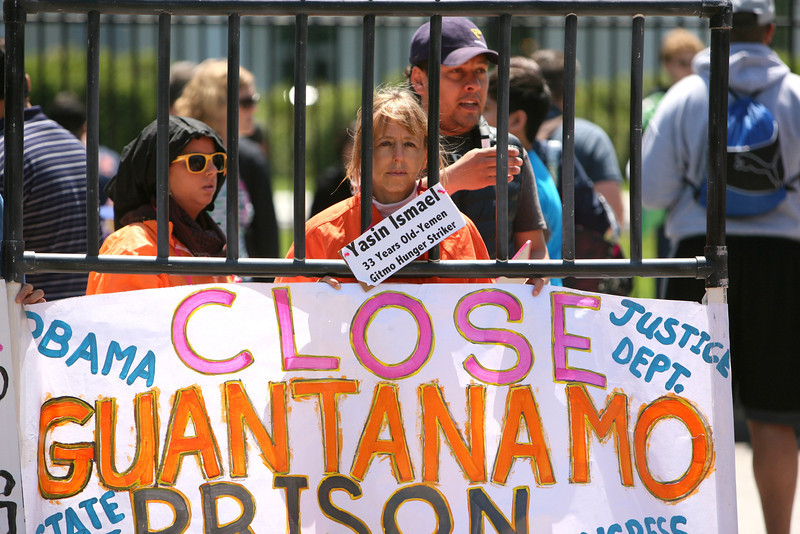
Opponents of the gas pipeline extension that would feed the Rockwool stone wool factory made their feelings very clear to the West Virginia Public Service Commission two weeks ago during a hearing for public comment in Shepherdstown. But, if an evidentiary hearing this morning in Charleston is any sign, the Commission may have its attention more focused on technicalities of utilities law in making its decision whether to approve the Mountaineer Gas Pipeline extension to Ranson.
The hour-long hearing focused almost exclusively on the Mountaineer Gas application’s ability to meet requirements under state law for an Infrastructure Replacement and Expansion Plan (IREP).
Mountaineer Gas is asking for a ratepayer increase to cover the cost of constructing the pipeline. If approved, Mountaineer Gas would get the money up front from ratepayers for building the pipeline extension. The estimated average increase in rates would come to about $18 per year.
Discussion focused on a specific law, SB 390, which authorizes the Commission to approve “expedited cost recovery of projects to replace, upgrade and expand natural gas utility infrastructure that are deemed just and reasonable and in the public interest.”
Prior to the hearing, Staff of the Public Service Commission, the Consumer Advocate Division, the West Virginia Energy Users Group and the Independent Oil and Gas Association of West Virginia had come to a joint stipulation and agreement for settlement.
The parties agree that the terms and conditions of the joint stipulation make up a “fair and reasonable resolution in the public interest.” They recommend that the Commission approve it without modification.
The settlement agreement mentions the public hearing on October 24 as part of the procedural history of the application but does not reference it or other public comment further.
During the hearing, there was also little mention of the passionate public opposition to the pipeline extension expressed on October 24 in Shepherdstown.
Only the Independent Oil and Gas Association’s representative acknowledged the opposition to Rockwool but made the argument that it was irrelevant to the Commission. Statutes don’t allow the Commission to pick and choose who gets the gas, he said. “IOGA fully supports the Rockwool extension. … The policy of the state is expressed in SB 390,” he said.
Tracy Cannon of Eastern Panhandle Protectors, however, believes that if the Commission takes that view, it would be missing the larger context.
“The Public Service Commission is completely disregarding the fact that there are lawsuits about Rockwool, the fact that there is political opposition to the pipeline and to Rockwool, not mention the 858 comments in protest of the project from members of the community,” she told DC Media Group. “The Commission is ignoring that reality of the Rockwool/pipeline situation, namely, that if the pipeline is built, it could end up being a pipeline to nowhere. They should at least delay this pipeline until the Rockwool issue is resolved in Jefferson County.”
The Commission aims to make a final decision on the Mountaineer Gas Pipeline extension by December 28.





One thought on “W.Va. Commission May Not Consider Public Concerns About Rockwool Gas Pipeline”